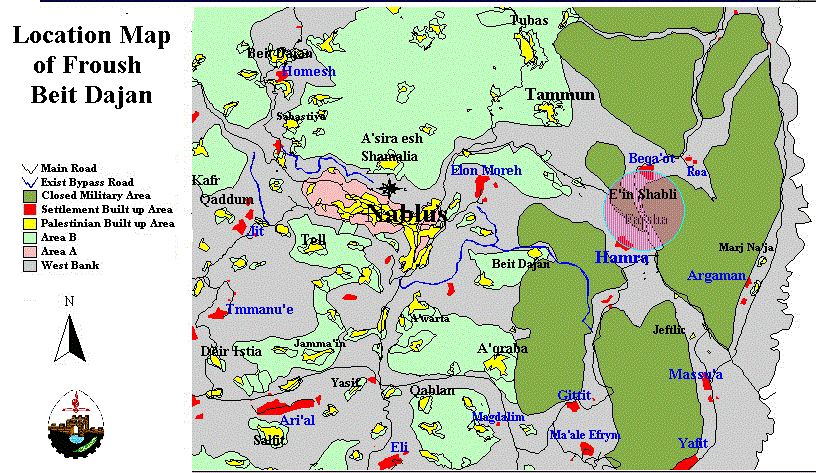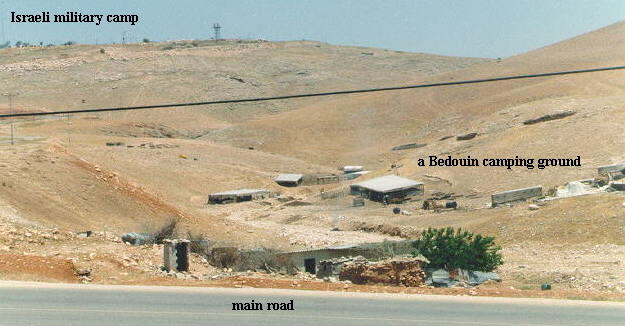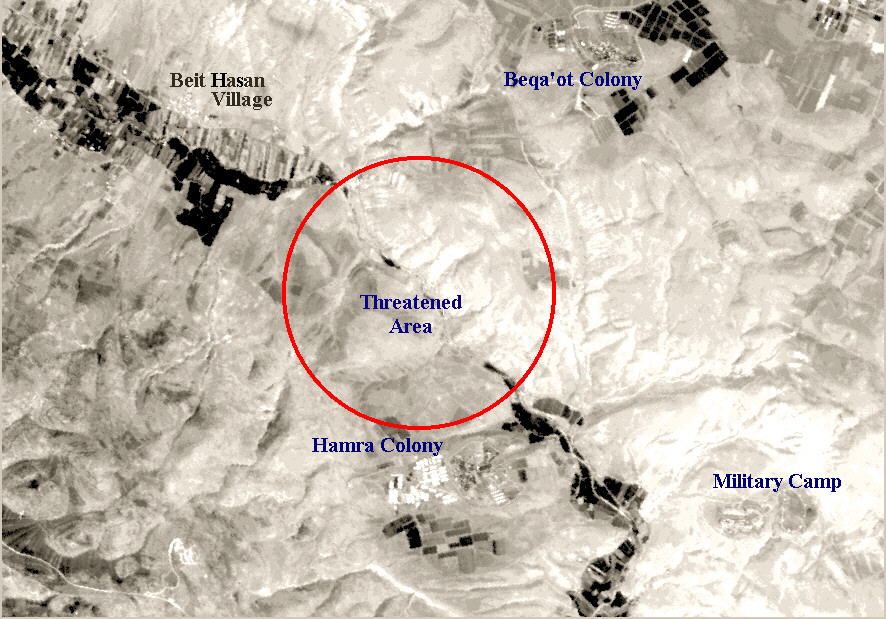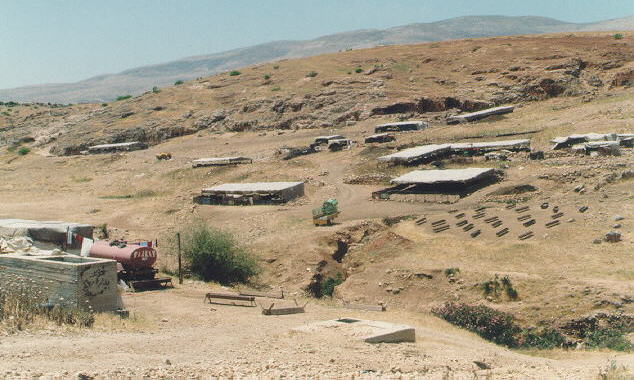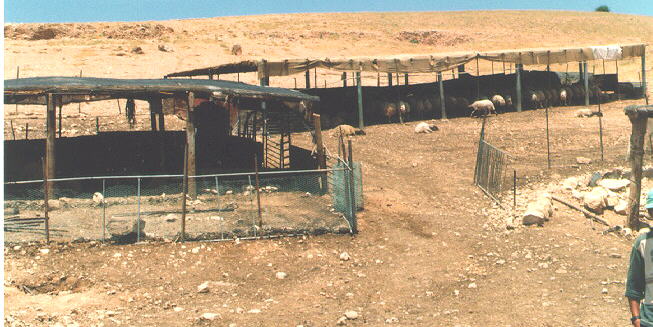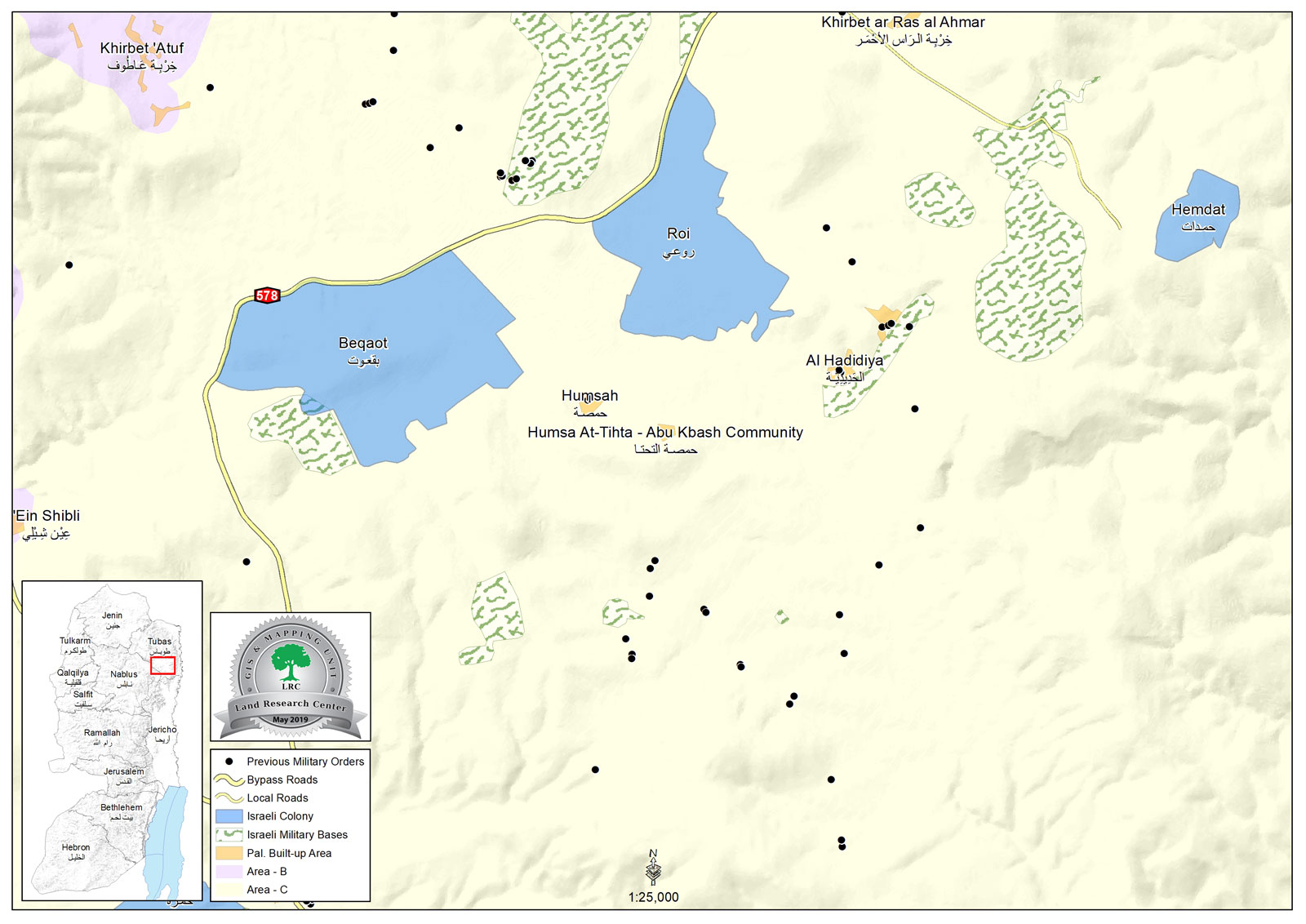Froush Beit Dajan is a rural area located east of Nablus in the agricultural Fari'a region (Figure 1). The inhabitants of Froush Beit Dajan are mostly semi-Bedouins who settled in the area after being evicted by Israel from their camping grounds in the Yattir village (northern parts of the Negev Desert) in 1952. The life style of these Palestinians, reaching approximately 5,000 people, has been greatly impacted by the sudden change in their living environment. After a tedious and slow process of adapting, these semi-Bedouins recently received new eviction orders by the Israeli military government in the West Bank. ). The inhabitants of Froush Beit Dajan are mostly semi-Bedouins who settled in the area after being evicted by Israel from their camping grounds in the Yattir village (northern parts of the Negev Desert) in 1952. The life style of these Palestinians, reaching approximately 5,000 people, has been greatly impacted by the sudden change in their living environment. After a tedious and slow process of adapting, these semi-Bedouins recently received new eviction orders by the Israeli military government in the West Bank.
Figure 1: Location Map of Froush Beit Dajan
On 4 March 1997, the inhabitants of Froush Beit Daj'an received notices of eviction from their grounds (Box 1). Israel claims that the reason for eviction is to protect lands adjacent to roads, the actual purpose is to make space for the expansion of the neighboring settlements of Beqa'ot and Hamra and evacuate areas designated as Area C (according to Oslo II agreement) from their Palestinian inhabitants in order to facilitate their annexation to Israel in the future (Figure 2).
Figure 2: Satellite image of Froush Beit Dajan area showing neighboring settlements
|
BOX 1 The decision :- Date of Notice: 4 March 1997 |
The northern parts of Froush Beit Dajan are a natural grazing area which has been used by Palestinian herders to provide feed for around 100,000 sheep and goats (Photo 2). The southern parts of this area is rich in spring water and is cultivated with fruit trees and vegetables (Photo 3). Thus the confiscation of Froush Beit Dajan for the expansion of Israel colonies will deprive many Palestinian families from their main source of living, thus causing economic hardship (Photo 4). ). The southern parts of this area is rich in spring water and is cultivated with fruit trees and vegetables (). Thus the confiscation of Froush Beit Dajan for the expansion of Israel colonies will deprive many Palestinian families from their main source of living, thus causing economic hardship ().
Photo 2: Natural grazing areas in the northern parts of Froush Beit Dajan
Photo 3: Agricultural areas in the southern parts of Froush Beit Dajan
Photo 4: Sheds for housing goats and sheep in Froush Beit Dajan
The case of Froush Beit Dajan is not unique. It is one of tens of cases where Bedouins have been evicted by Israel in order to facilitate the expansion of Israeli colonies. As early as 1950, Israel started with this policy against Bedouins in the Negev area and later applied it to Jahalin Bedouins near Abu Dies, Rashaydeh Bedouins east of Bethlehem, and Al-Ka'abneh east of Samu' town in the Hebron district.
These cases are blatant violations the Fourth Geneva Convention of 1949 and many United Nations resolutions, particularly General Assembly Resolution 1803 (XVII) of 1962 which states that 'The right of people and nations to permanent sovereignty over their natural resources must be exercised in the interest of their national development and of the well-being of the people of the state concerned' and that violation of this right is contrary to the spirit and principles of the Charter of the United Nations and hinders the development of international cooperation and the maintenance of peace'.
Prepared by:
The Applied Research Institute – Jerusalem


